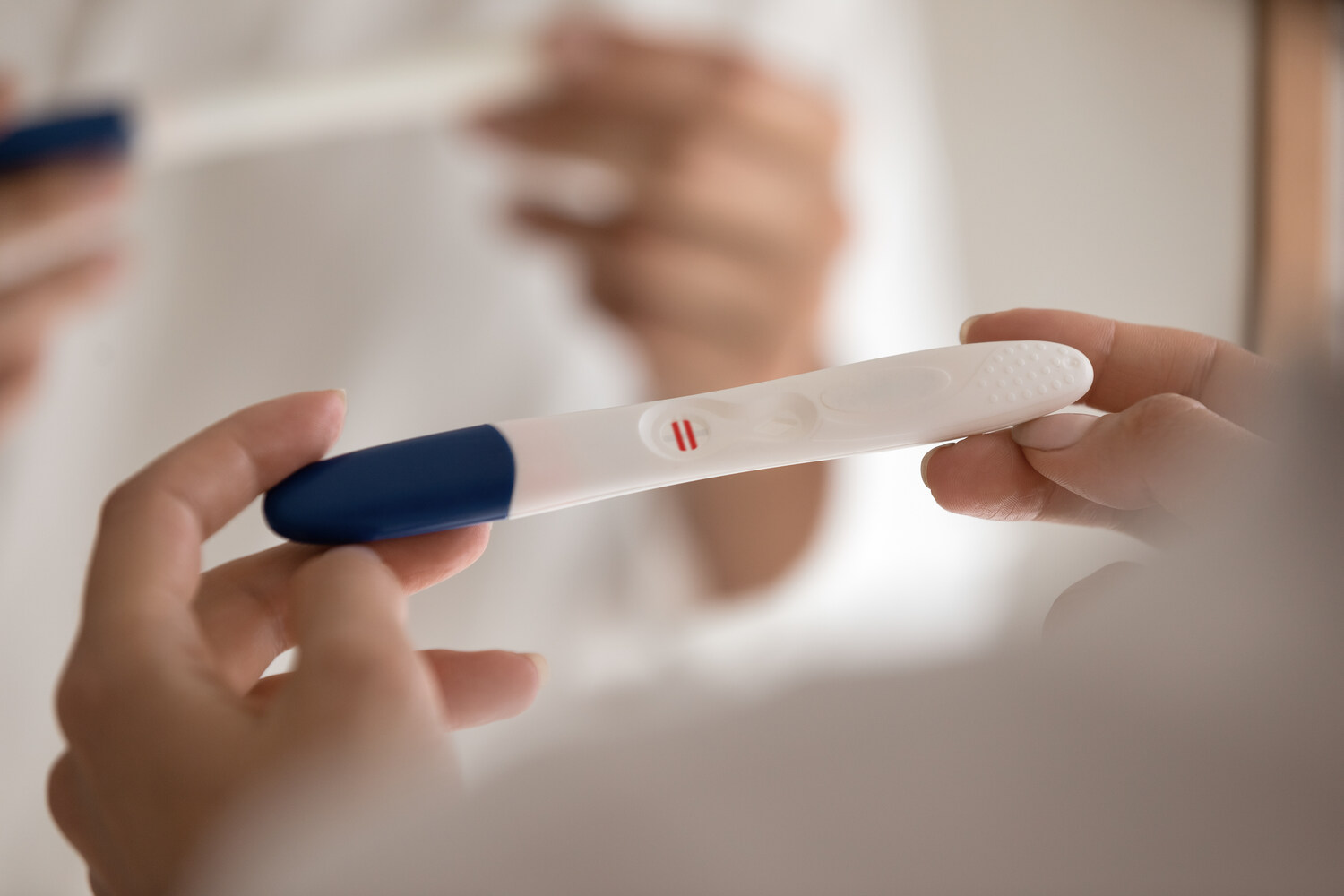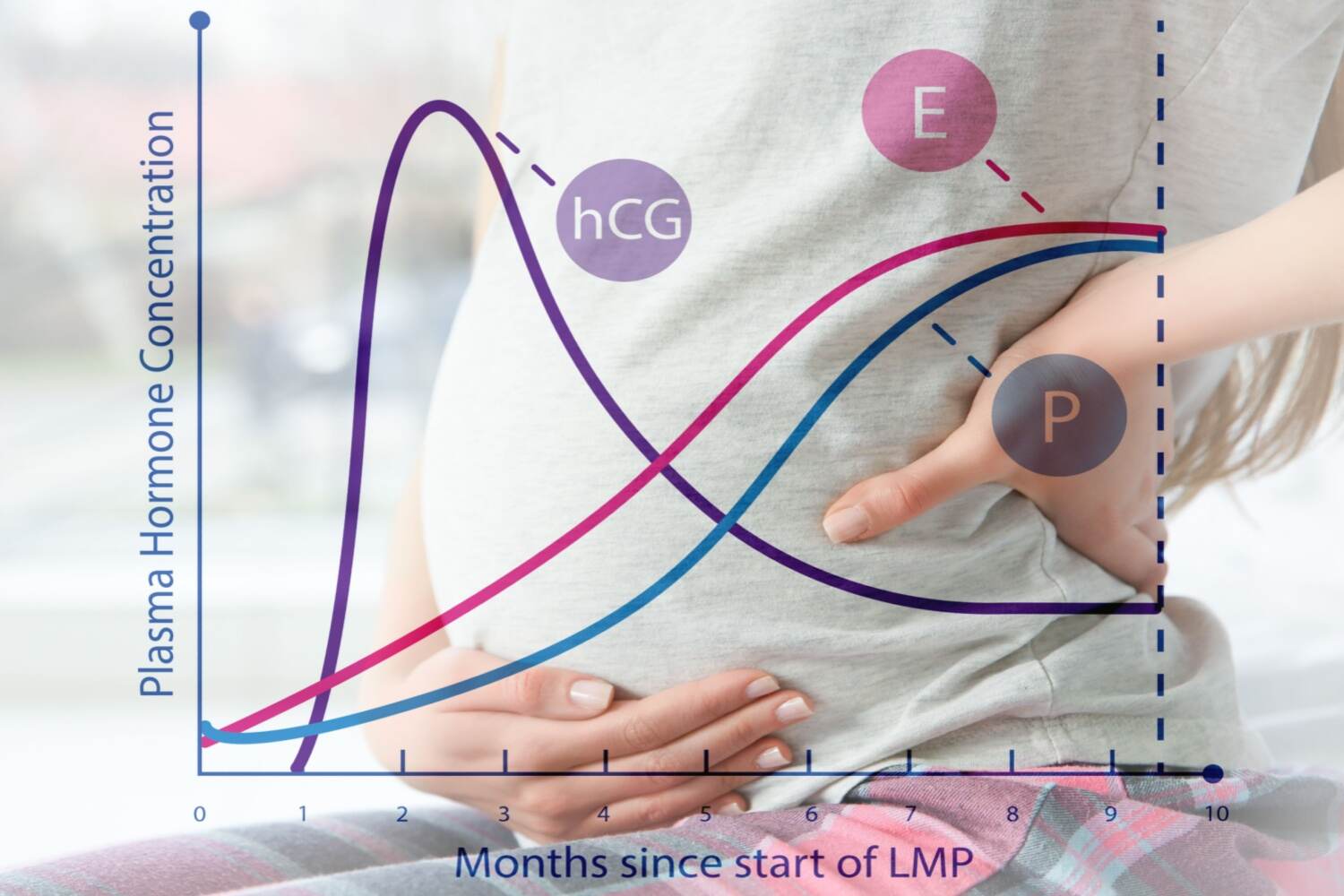 Pregnancy is a wonderful phase of a woman’s life. The beginning of a new life inside her womb fills a woman with pride and joy. The beginning of the new journey confirms the presence of HCG in the urine and blood. HCG stands for human chorionic gonadotropin hormone, which begins to be released into the urine or blood after conception. The presence of HCG not only confirms pregnancy, but also indicates the progress of fetus growth and complications during pregnancy. HCG levels during pregnancy will be measured at different intervals to ensure that the pregnancy is going smoothly.
Pregnancy is a wonderful phase of a woman’s life. The beginning of a new life inside her womb fills a woman with pride and joy. The beginning of the new journey confirms the presence of HCG in the urine and blood. HCG stands for human chorionic gonadotropin hormone, which begins to be released into the urine or blood after conception. The presence of HCG not only confirms pregnancy, but also indicates the progress of fetus growth and complications during pregnancy. HCG levels during pregnancy will be measured at different intervals to ensure that the pregnancy is going smoothly.
Doctors continually monitor HCG in the blood to understand how the pregnancy is proceeding. To help you understand the HCG level and what this indicates about the pregnancy, here are the key details we have covered.
In This Article
- What Do HCG Levels Mean in Pregnancy?
- When Does Your Body Start Producing HCG?
- When Can Pregnancy Tests Detect hCG?
- What Does It Mean if You Have High or Low hCG Levels?
- What You Need to Know About Your hCG Levels?
- FAQs
What Do HCG Levels Mean in Pregnancy?
Human chorionic gonadotropin, also known as pregnancy hormone, is released into the blood, and traces are found in urine. Typically, the hormone is used to confirm your pregnancy. It generally takes up to two weeks to confirm pregnancy using HCG hormone presence at home pregnancy test (1).
The unit in which the HCG levels are measured is milli-international units per milliliter (mlU/ml). A pregnancy test is taken to find out about the existence of HCG levels. If the HCG levels show more than 25 mlu/ml then pregnancy is declared. Let us have a look at the evidence on normal pregnancy HCG values:
- Blood HCG below 5 mIU/ml: Negative result and not pregnant
- Blood HCG between 5-25 mIU/ml: “Ambiguous.” The woman could be pregnant or not. The test must be repeated after a few days.
- Blood HCG is more than 25 mIU/ml: Pregnancy Confirmed!
However, only one reading cannot be the only criterion, so after a few days, more HCG tests have to be done for a proper and exact calculation.
When Does Your Body Start Producing HCG?
The HCG hormone begins to be produced when the fertilized egg is implanted into the uterus. It usually occurs during the early days of pregnancy or 6-10 days after fertilization. This hormone is produced from the placenta, and the level of HCG begins to rise during the later stage of pregnancy.
When Can Pregnancy Tests Detect hCG?
 HCG hormone can easily be detected in urine 12–15 days after the release of egg or ovulation. Moreover, the level of HCG remains high at the end of the first trimester of pregnancy, usually after 10 weeks (2). However, during the initial days, the level of HCG will be low. If you have missed your periods, which generally occur after 14 days of conception, the presence of HCG can be an indication of pregnancy.
HCG hormone can easily be detected in urine 12–15 days after the release of egg or ovulation. Moreover, the level of HCG remains high at the end of the first trimester of pregnancy, usually after 10 weeks (2). However, during the initial days, the level of HCG will be low. If you have missed your periods, which generally occur after 14 days of conception, the presence of HCG can be an indication of pregnancy.
What Does It Mean if You Have High or Low hCG Levels?
In addition to pregnancy confirmation, the level of HCG in urine and blood indicates the progress of your pregnancy. During the early days of pregnancy, the level of HCG remains low, and as the pregnancy progresses, the level reaches a peak. The level of HCG will be highest at the end of the first trimester.
The HCG hormone begins to decline as pregnancy progresses. Furthermore, the amount of human chorionic Gonadotropin in the blood provides helpful information about pregnancy and fetus health (3).
| Pregnancy Stages | Level of HCG Into the Blood During Pregnancy |
| 4 weeks of pregnancy | 0 – 750 µ/L |
| 5 weeks of pregnancy | 200 – 7,000 µ/L |
| 6 weeks of pregnancy | 200 – 32,000 µ/L |
| 7 weeks of pregnancy | 3,000 – 160,000 µ/L |
| 8 – 12 weeks of pregnancy | 32,000 – 210,000 µ/L |
| 13 – 16 weeks of pregnancy | 9,000 – 210,000 µ/L |
| 16 – 29 weeks (second trimester) | 1,400 – 53,000 µ/L |
| 29 – 41 weeks (third trimester) | 940 – 60,000 µ/L |
The level of HCG indicates various things about pregnancy and fetus growth. For instance, a low level of human chorionic gonadotropin hormone is standard during the first week of pregnancy. However, if the HCG level remains low and rises more slowly than the expected range, it may indicate an ectopic pregnancy. This is a condition when a fertilized egg implants within a fallopian tube, or there is a risk of miscarriage. A higher-than-normal peak range of HCG is an indication of twins and triplets. Moreover, it also indicates abnormal uterine growth. On the other hand, a falling level of HCG may indicate a loss of pregnancy or miscarriage.
What You Need to Know About Your hCG Levels?
 When a woman’s pregnancy progresses further, her HCG level reaches a peak; it doubles every 96 hours at the end of the first trimester. The following are the things you need to know about your HCG level:.
When a woman’s pregnancy progresses further, her HCG level reaches a peak; it doubles every 96 hours at the end of the first trimester. The following are the things you need to know about your HCG level:.
- When your HCG level increases or makes excessive HCG more than the normal range, you must take some caution by consulting with a doctor.
- A low level of HCG during the third trimester indicates healthy growth of the baby.
- Ultrasound after 5–6 weeks of gestation provides an accurate number of HCG levels.
- A low HCG level, typically less than 5 mIU/mL, indicates an adverse pregnancy or a false alarm.
- High levels of HCG confirm a positive pregnancy, and HCG levels ranging above 25 mIU/mL are also an indication of a positive pregnancy.
- During the late pregnancy phase, a transvaginal ultrasound was done to check the gestational sac when the HCG level touched the range of 1,000–2000 mIU/mL.
- The single HCG level reading may not be sufficient for diagnosing pregnancy. However, when HCG is used for detecting pregnancy progress and fetal health, multiple HCG-level tests will be done within a couple of days for an accurate assessment.
In a nutshell, learning about the level of HCG during pregnancy can help you manage the condition before it becomes worse. Information about high and low levels of HCG determines pregnancy issues. However, a low or high level does not always mean complications. It may be an indication of twins or triplets. Hence, it is advised to get a doctor’s consultation to get accurate guidance on HCG levels during pregnancy.
FAQs
1. What is a Normal hCG Level At 5 Weeks?
The range of HCG at 5 weeks of pregnancy will be between 217 and 8,245 mIU / ml. However, the range of HCG may vary according to the length of pregnancy or gestation period.
2. What Week is hCG Positive?
Human chorionic Gonadotropin is positive after 11-15 days of conception. It is detected in urine 12-14 days after conception.
3. What Week of Pregnancy Does hCG Rise?
The level of HCH is generally every 72 hours and may reach a peak during pregnancy.
4. How Many Weeks is HCG the Strongest?
The level of HCG will be strongest between 8 and 12 weeks of pregnancy. After reaching the peak, it gradually starts declining because the placenta has developed the hormone in enough quantity, and it may begin to supply progesterone to proceed with pregnancy further.
References:-
- Human Chorionic Gonadotropin –
[https://www.ncbi.nlm.nih.gov/books/NBK532950/] - Pregnancy –
https://www.fda.gov/medical-devices/home-use-tests/pregnancy] - hCG levels –
[https://www.healthdirect.gov.au/hcg-levels] - First-trimester bleeding with falling HCG –
[https://www.ncbi.nlm.nih.gov/pmc/articles/PMC1949168/] - Pregnancy Loss (Before 20 Weeks of Pregnancy) – [https://www.nichd.nih.gov/health/topics/factsheets/pregnancyloss]
- Ectopic Pregnancy –
[https://www.aafp.org/pubs/afp/issues/2000/0215/p1080.html]

